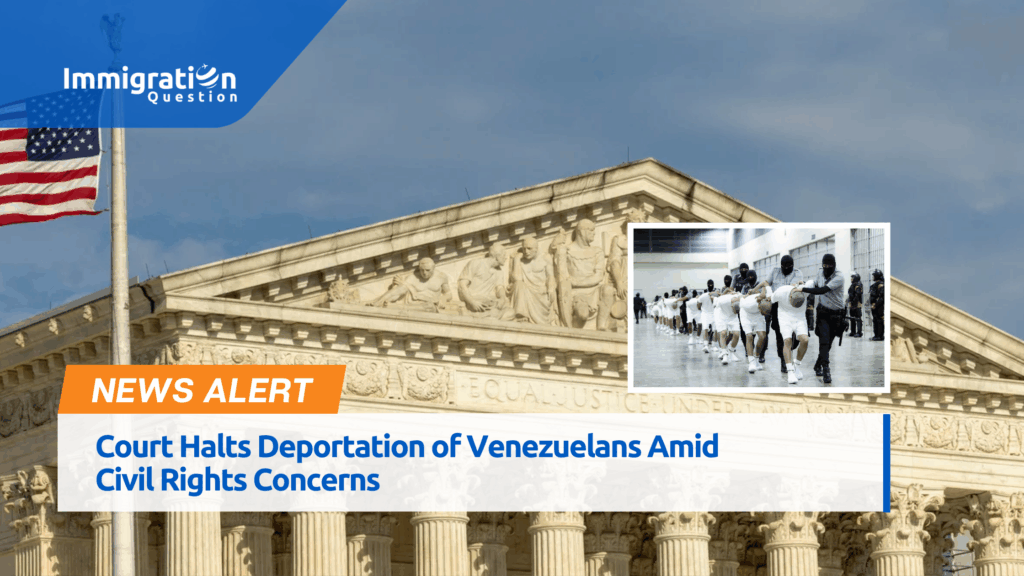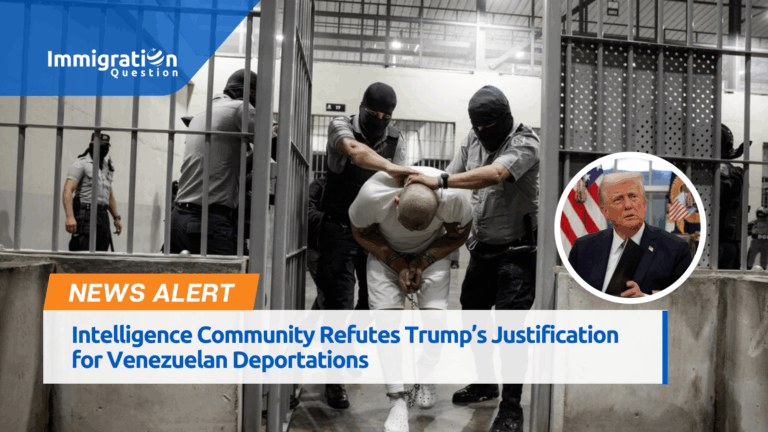The U.S. Supreme Court has paused deportation of Venezuelans accused of gang activity, challenging the Trump administration’s use of a wartime law. Civil rights groups argue that the detainees were denied fair legal processes, raising broader questions about presidential power and immigration enforcement.
A Legal Pause on Deportations
The U.S. Supreme Court has issued a temporary halt on the deportation of several Venezuelan nationals detained in Texas, marking a significant development in an ongoing legal battle over the Trump administration’s controversial use of an archaic wartime law. The detainees, accused of gang affiliation, were scheduled to be deported to El Salvador under the 1798 Alien Enemies Act — a law that grants presidential authority to remove nationals from countries considered hostile to the United States.
Historical Law Revived in Modern Immigration Policy
Rarely used in U.S. history, the Alien Enemies Act has been used only three times — all in times of war, such as World War II. This time, the Trump administration justified its action by labeling the Venezuelan gang Tren de Aragua a national security threat, accusing its members of hostile intent against the U.S.
Under this premise, 137 Venezuelans out of 261 deported to El Salvador were removed through the powers granted by the law.
Legal Challenge of Civil Rights Groups
The American Civil Liberties Union (ACLU) and other organizations filed suit to decry the deportations. At the top of their list of grievances is the complaint that the detainees, several of whom are jailed in north Texas, were not adequately informed of their legal rights. The reports say that some received notice of removal only in English despite having limited language knowledge. The ACLU maintains that the detainees were not provided with a meaningful opportunity to challenge their removal in court and, as such, may have been denied their due process rights.
A lower court had previously blocked the deportation in March, prompting a legal back-and-forth that culminated in a Supreme Court decision on April 8 allowing the removals to proceed — but only under the condition that the accused be given a chance to contest their deportation.
Deportations to a Notorious Facility
The Venezuelans have been sent to a widely criticized mega-prison in El Salvador, where human rights groups have documented poor living conditions and alleged abuse. The concern, according to legal filings, is that deportees may face indefinite detention or worse in El Salvador without a formal conviction in the U.S. or the ability to defend themselves.
Two conservative justices dissented from the court’s Saturday decision to halt the deportations, arguing for the administration’s authority to act swiftly in the name of national security.
Critics Warn of Precedent and Human Cost
Critics warn that this case could set a dangerous precedent for the use of wartime powers in immigration policy, particularly against vulnerable populations. They argue that such an extension of executive power could bypass the established conventions of due process and fair hearings, mainly when prosecuting alleged criminal activity without trial.
What’s Next?
The court battle is hardly over. The Supreme Court’s decision is tentative, pending a review of the detainees’ arguments on the law. The case also touches on how far the government can go in the name of national security and whether the government can do so without infringing on civil rights. While the court is preparing to hear further arguments, the outcome may redefine the legal context for immigration enforcement in the United States.
To stay updated and informed, watch our news section or drop your immigration questions on immigrationquestion.com and get responses from professional attorneys. Attorneys streamline and manage your immigration cases in one place on Immigration Speed.










